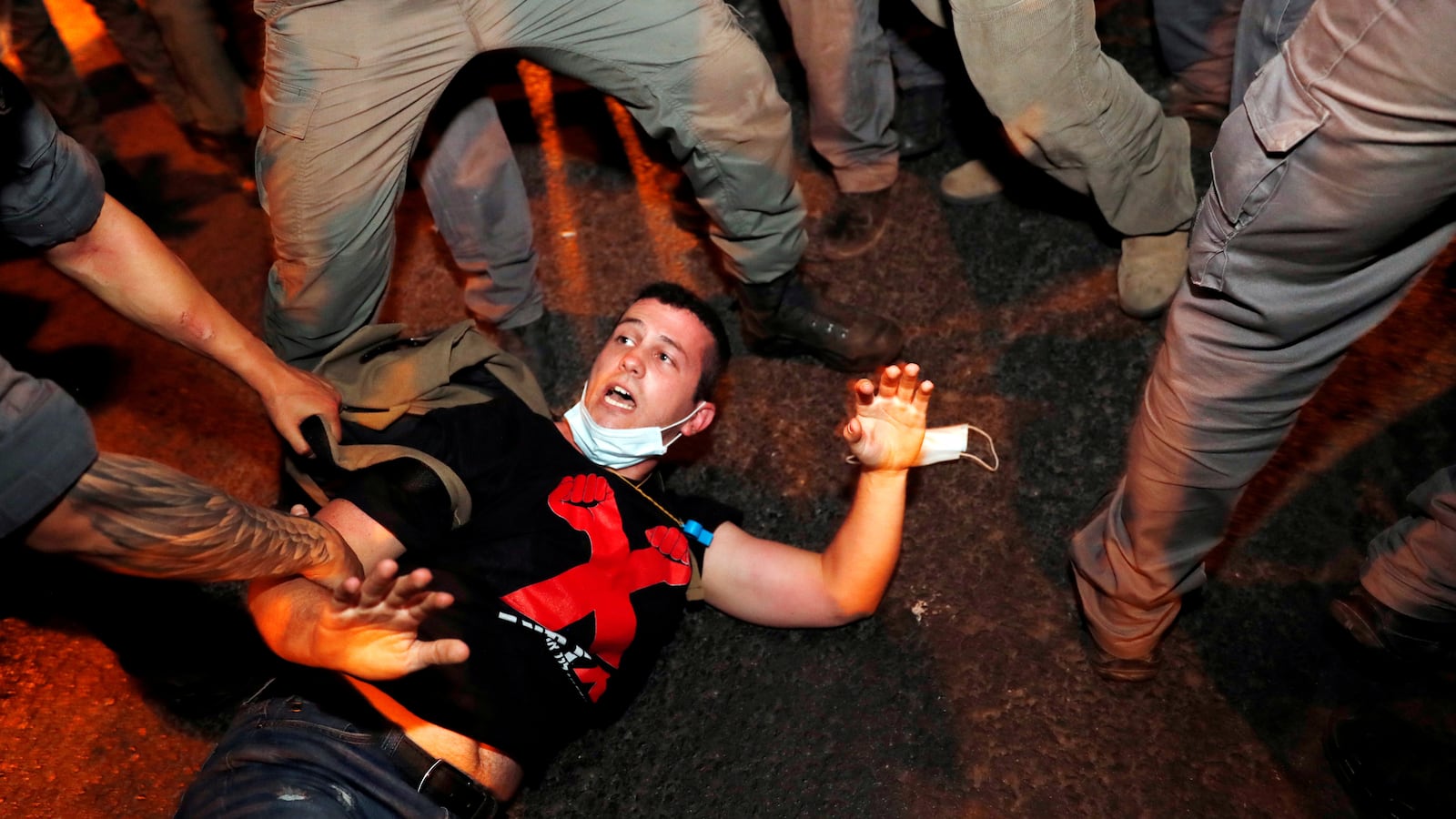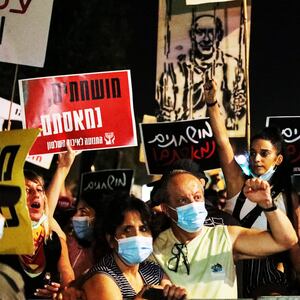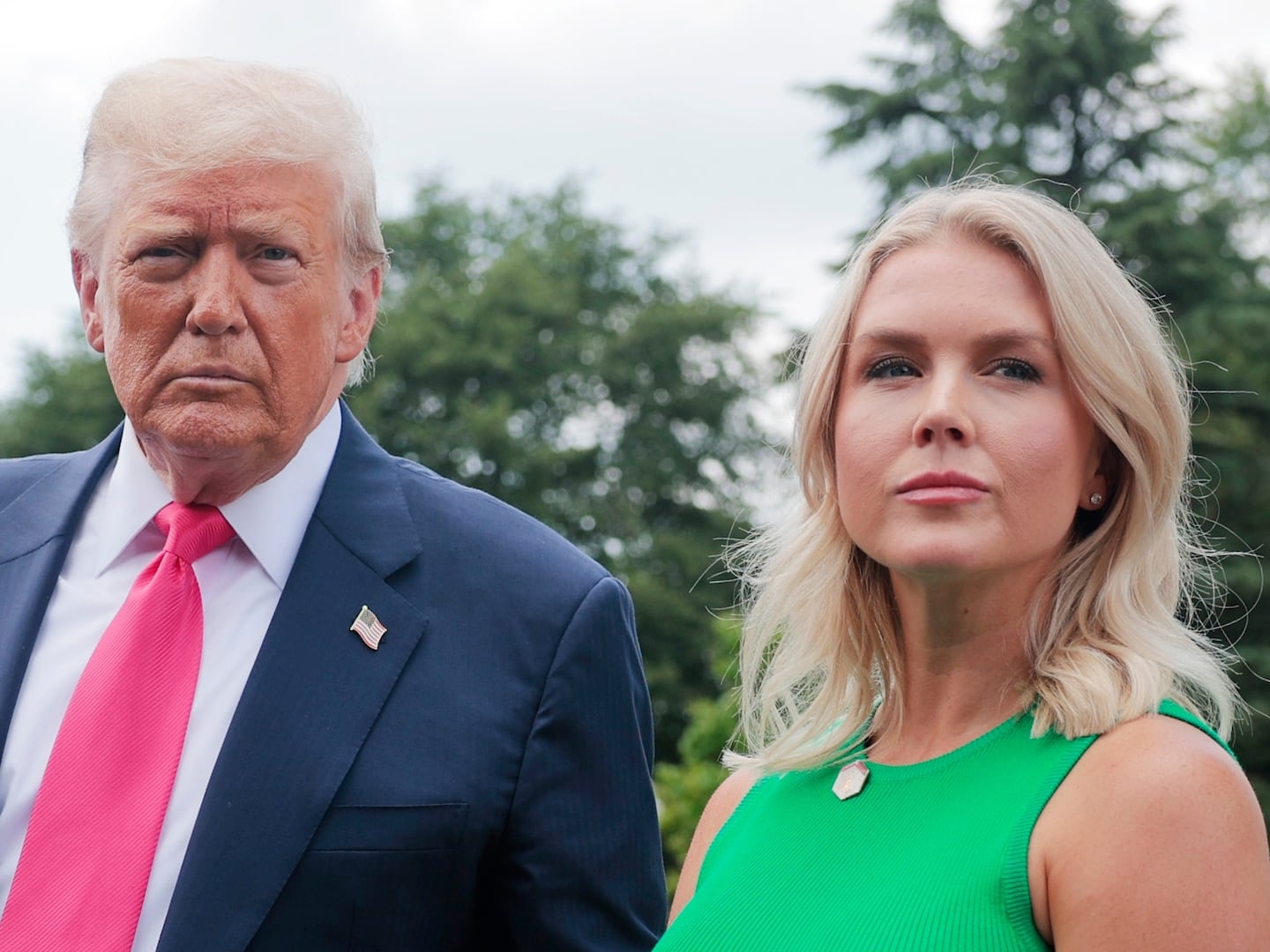JERUSALEM—Israeli police roughed up international journalists and used water cannons and mounted police to ram peaceful protesters close to Benjamin Netanyahu’s official residence early Wednesday morning in the latest round of demonstrations demanding the Israeli prime minister’s resignation.
The protests began about six months ago, in the wake of Netanyahu’s indictment on several corruption charges. They escalated in recent weeks as the government appeared to lose control of the coronavirus pandemic.
After midnight, as police attempted to disperse the activists, officers struck at least two journalists, including Guilhem Delteil of Radio France International, who was shoved into the street from the sidewalk.
Delteil, who was wearing a T-shirt, was manhandled by the police despite the fact that he was interviewing protesters using a bright red professional microphone clearly marked with the logo of his radio station. He repeatedly told the officers in Hebrew that he was a journalist. After deciding to leave because of the police’s violent actions, he realized he was bruised and bleeding from scratches on his arm where he had been pulled by two officers.
As the police launched the operation to disperse the public, this journalist was also kicked and thrown to the ground by two female border police officers. I landed by a tree on Agron Street, one of the exits from Paris Square.
Delteil filed a complaint with the Foreign Press Association, which represents foreign journalists working in Israel. FPA Director Ellen Krosney said she was passing the complaint to the organization's board “for further action.”
Superintendent Micky Rosenfeld, the police spokesman, said members of the media are always taking a chance if they choose to cover protests.
“Journalists were doing their job, stayed away from trouble, but there is always a risk factor for them—that they are aware of—when protests take place,” he said.
The activists have been protesting against the government’s mismanagement of the coronavirus crisis, and about Netanyahu’s status as a criminally indicted head of government.
Tuesday’s rally began with restaurant owners and workers angered by the zigzagging COVID-19-era restrictions imposed on their businesses, and conditions they say make their economic survival impossible. The Israeli government has changed the rules regarding restaurant operations three times since the weekend.
Rama Ben-Zvi, owner of a landmark restaurant in the Judean Hills outside Jerusalem, said, “We feel there is no leadership. There is no one we can talk to. It feels like the government just wants to finish with restaurants.”
The restaurant workers’ protest was later joined by activists from the Black Flag organization, a group that has been leading biweekly marches and protests against the prime minister, who is on trial for three counts of corruption, including bribery, fraud, and breach of trust.
After a two-month break, Netanyahu’s trial resumed on Sunday.
Protesters had been granted permission to demonstrate until 11 p.m., but refused to leave Paris Square, the plaza adjacent to Netanyahu’s official residence. Many were singing, dancing, or calling on him to resign.
At about 12:30 a.m., police units began dispersing protesters with water cannons, and mounted police officers ramming into demonstrators started to fill the plaza. Unlike similar rallies in American cities in recent weeks, the police did not deploy any weapons.
Roi Yanovsky, a reporter for Israel’s Kan News broadcaster, filmed border police and members of an elite policing unit removing protesters from the plaza in what he called “a deployment of excessive force." Police said 38 arrests were made for suspected disorderly conduct and for alleged violence against police officers.
Eran Etzion, a former deputy national security adviser of Israel, who participated in the protest, wrote on Twitter, “There was not a hint of violence among the thousands of young people who filled Paris Square and the square and street in front of the Knesset. There is no logical reason to use police violence. None.” He called on police and protest organizers to appoint a mediator to prevent future violence as the protests continue to grow.
Jerusalem District Police Commander Doron Yadid said in a statement that “a smoke grenade was activated and bottles and stones were thrown at the police.” A video released by the police did not show any violence aimed at officers.
Rosenfeld, the police spokesman, said arrests were made among “protesters that remained in the area, blocking roads, and were involved in disturbances,” despite police informing them the rally was illegal.
On Wednesday morning, several dozen protesters threw themselves to the ground in front of the Knesset, Israel’s parliament, briefly blocking three entrances to the site as legislators inside debated a bill proposed by the Netanyahu government, which would allow it emergency powers to bypass the Knesset on coronavirus issues. These demonstrators, who belong to the global Extinction Rebellion movement, were forcefully removed by the police, who said four had been detained.
The Black Flag protests are expected to resume in Tel Aviv and in Jerusalem on Saturday night.







